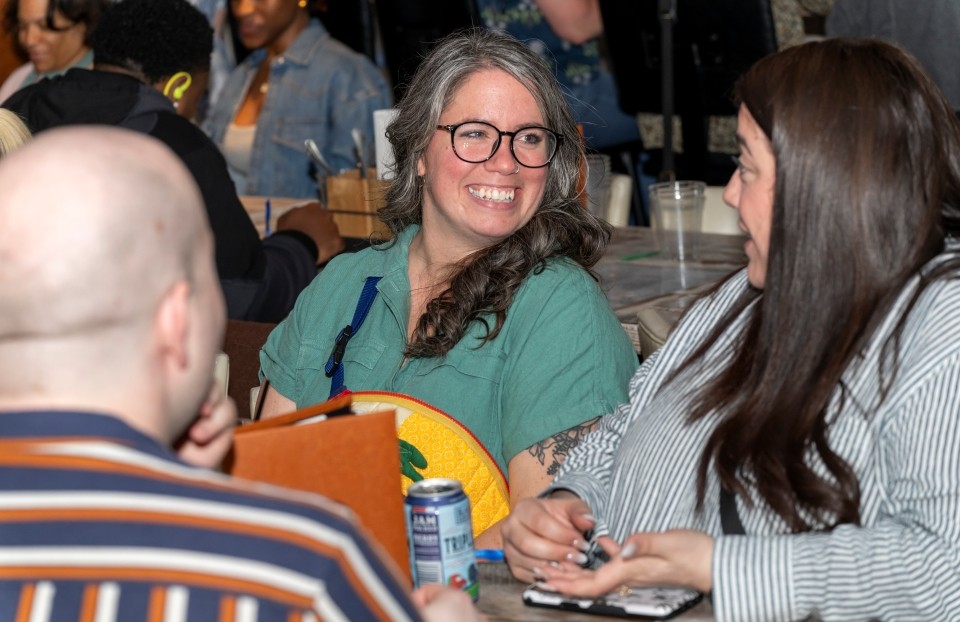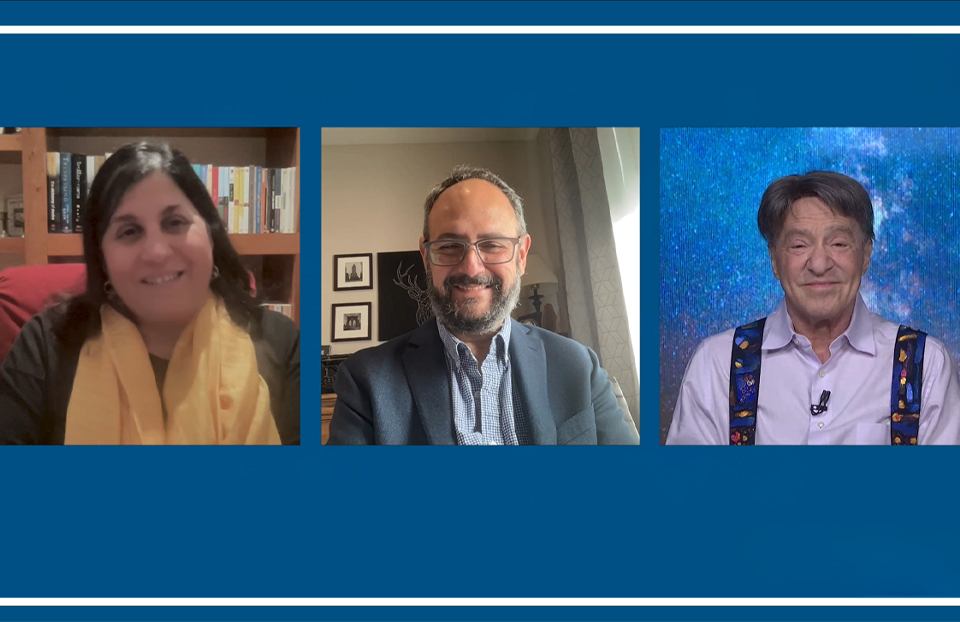Intel ISEF Grand Award judge awed by competitors
Brian Gray served as a Grand Award Judge at Intel ISEF 2014. Brian was Director of Community Engagement at Harvey Mudd College, where he served as a staff advisor for Science Bus , a student-run organization that writes and teaches weekly hands-on science lessons at local schools. He is now Director of Tutoring at Columbia University.
Can you describe the volunteer process? What does a typical day look like?
My favorite thing about Intel ISEF is that there simply isn’t a “typical” day — there are so many ways to be involved! I’ve been fortunate enough to be able to volunteer the entire week of Intel ISEF the past couple of years, so my first day is usually with the Display & Safety Committee, which is one of my favorites because we’re some of the first people the finalists meet, so we can really set the tone for the event! If we’re excited and thrilled to be there, so are the finalists!
I spend a day-and-a-half as a judge for the Animal Sciences panel, and I volunteer the rest of the time with the Education Committee as a lead instructor for the hands-on STEM activities we do with the more than 3,000 K-12 students who visit the fair each year. I’ve also helped with check-in, with clean-up, and with the Local Area Committee for Los Angeles. There’s something for everyone who wants to help, and Intel ISEF needs people with all sorts of expertise during the event!
It’s not every day that you get to immerse yourself in world-class research and hear from those performing it.
Have you ever served as an interpreter?
I’ve never been an interpreter. I still need to practice my Spanish and American Sign Language so that I can be skilled enough to interpret! But I have interacted with a lot of interpreters, especially since my friends and students have served in this capacity, and interpreters are so vital to the judging process. We could always use more interpreters — they make a huge difference for finalists who might not feel as comfortable conversing with a judge in English.
What is the most rewarding aspect of volunteering for Intel ISEF?
Where do I start? There’s so much! I think my three favorite things, in no particular order, are: one, meeting the finalists and their official parties. The finalists are so energetic and enthusiastic, and they have wonderful stories to tell.
Two, viewing the projects — I get to learn so much from the finalists! It’s not every day that you get to immerse yourself in world-class research and hear from those performing it, especially in such a friendly and supportive environment.
Three, interacting with the other volunteers! Those hardy souls who volunteer in one capacity or another are so much fun to work with! Everyone is there to do a big job, but everyone understands the real reason we’re there is for the next generation of amazing scientists, engineers, and other professionals. Because of this, there’s a really convivial, energetic atmosphere, and I love hearing about why everyone else is volunteering — people come from all over, and from all walks of life.
What was your favorite experience at Intel ISEF?
I’ve had so many, and I’ve only been doing this a short time. Hearing Mick Ebeling of Not Impossible Labs at the opening ceremonies was awesome, working with the Scirens STEM ambassadors during education day, and so much more.
But what stands out from last year was getting to meet two of the top winners during clean-up. I was part of the crew that shuts down the halls after everything is over, and because the winners talk with press after the closing ceremonies, they don’t get to take down their project for a while. They were super friendly and still wrapping their heads around their big wins, and it was a really amazing moment.
Did you have the opportunity to volunteer with or help someone from a different country? Can you describe the experience?
That’s one of the best things about Intel ISEF — we meet people from so many countries during the entire experience! I’ve worked in the classroom during education day with other educators from the Middle East and Canada, judged with respected researchers from more than a dozen countries, and interacted with finalists from more than 70 countries!
One team from Puerto Rico was so excited to be there — they were the first team I ever handled for Display and Safety, and they were just so happy about every step of the Intel ISEF process. They’re definitely one of my favorites.
And I have a soft spot for solo finalists, who are the only representative from their country (especially if it’s the first time their country is represented at Intel ISEF). I have a lot of respect for the courage and strength it takes to do that.
How did you first become interested in science?
That’s a loaded question! I was always reasonably good at science, but didn’t LOVE it like a lot of other scientists. When I was young, I much preferred to play basketball. When it came to education, I always preferred stories, and it wasn’t until my high school biology teacher pointed out that science is all about uncovering the stories that exist in nature that I really started to get into science.
My interest in science is always fueled by what the impact of science is on people. There’s a lot of really great science that doesn’t do that. For example, my dissertation focused on research with limited immediate applicability to people, and it’s valuable, much-needed work. But for me, my interest in science has always been tied to the stories of the people doing it and the people impacted by it.
Do you have any advice to young people interested in science or math?
Keep up the great work! There’s so much to be done, and I feel that we often overlook how much impact the work that our young scientists, mathematicians, and engineers has.
The work that finalists at Intel ISEF do has the potential to transform our world in profound ways, and I’m always in awe of what these finalists do!
But it’s not just the finalists at Intel ISEF — there are so many other people doing great work. What I hear from all of these young people is that they pursued their passions, found a question that kept them up at night that made them question their understanding of the world, and they ran with it. That’s great advice for anyone, at any age.
Learn more about volunteering at Intel ISEF 2016 in Phoenix.


